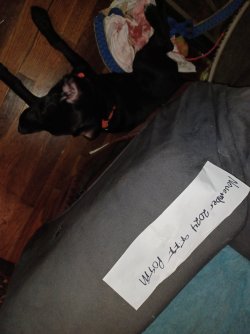This is my queen (green arrow)
camponotus castaneus, common name: chestnut carpenter ant. This ant is native to Eastern North America, but is only found in Canada on Pelee Island in Lake Erie and in Point Pelee National Park. As such, collection is illegal in the park and most folks aren't taking the ferry to the island unless they live out that way, the only way to obtain this ant in Canada is to purchase it from a reputable source that has import permits from places in the USA. This colony was purchased in such a way. I spent a whole summer collecting wild native ants to send in as a supply to the shop and did a trade in for this lady. Selling queen ants seasonally kept our heads above water during the pandemic when both my husband and I were out of work, and now it has evolved into a hobby for myself as well.
She has the potential to live over 20 years, but more likely less. Her workers may only live 1.5 years tops.
Ants are an interesting pet, I have many colonies, but this lady is my favourite. Unlike most carpenter ants, this species nests mostly in soil and requires more humidity to survive in captivity than other species, but also given that she's a more southern species, hibernation isn't as strict as with the more abundant northern species in my area who require 5°C temperatures for 3 months in order to live longterm. Instead, she is taken off of heat for 2 weeks during winter and fed less protein during this time as a short diapause rather than a full blown hibernation period.
She is fed by her workers, she never leaves her nest. In fact, after workers hatch many queens do not even care for their own brood. They let their workers do all the work while they simply lay eggs every day. She is no exception to this, though she is more attentive to her workers than some other queens I have. She does interact more with them.
They are fed a daily supply of sugar water available 24/7 in a gravity liquid feeder in an outside part of their home and once or twice a week they get a protein source food, usually a cricket or mealworm. Sometimes other wild insects depending on what is seasonally available. They are very fond of mosquitoes.
This species must be kept warm, mine stay on a heat mat at 26-28°C all year round with exception of their short winter diapause.
Ants make great pets for those with space constraints or want a relatively low maintenance pet for an office desk. Starting colonies requires patience, but they'll grow in time and it's fun watching how they interact with one another and show very caring behaviors towards their own colony.




